Trazos Paralelos (2021)
Gênero : Documentário
Runtime : 16M
Director : Arnold Sotomayor
Escritor : Fabio Llicán
Sinopse
Documentary short that follows the creative process of two artists with opposite styles.
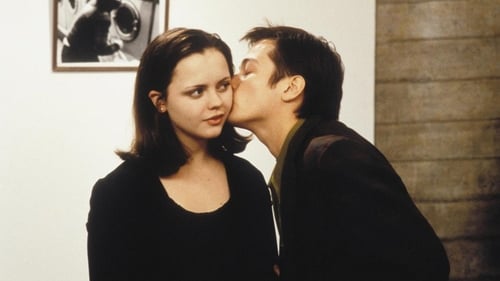
Narra a história de Pecker(Edward Furlong), um fotografo amador de Baltimore, que usa como assunto de suas fotos todos freaks e losers da cidade. Um dia ele é descoberto por uma dona de galeria de artes de Nova York, vivida por Lili Taylor, que resolve fazer uma exposição das fotos de Pecker. Ele acaba se transformando na nova sensação artística da cidade. Mas sua fama repentina irá mudar o comportamento de todos a sua volta, principalmente dos espectadores que não deveriam ter nada com isso.
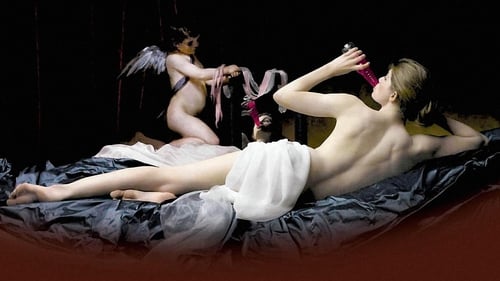
Uma paixão que transcende gerações..... Maurice (Peter O´Toole) e Ia (Leslie Phillips) são velhos amigos, atores ingleses veteranos que nunca tiveram sua grande chance. Agora em seus "anos dourados", continuam a trabalhar - Maurice por exemplo, interpreta um paciente moribundo em uma série de televisão. Mas suas rotinas confortáveis e os cafés-da-manhã no lugar favorito, são interrompidos pela chegada da sobrinha-neta de Ian, Jessie ( Jodie Whittaker), do interior. Ela acaba com a paciência do avô rapidamente, mas Maurice se simpatiza com a garota e a leva para conhecer os atrativos culturais de Londres. Conforme Maurice tenta transmitir a Jessie as vantagens da experiência, ele se surpreende, descobrindo como conhece pouco a si mesmo, agora que sua vida está chegando perto do final.
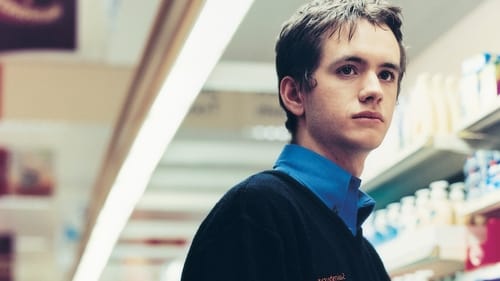
Após uma separação dolorosa, Ben desenvolve insônia. Para ganhar tempo, ele começa a trabalhar no turno da noite no supermercado local, onde sua imaginação artística corre solta.
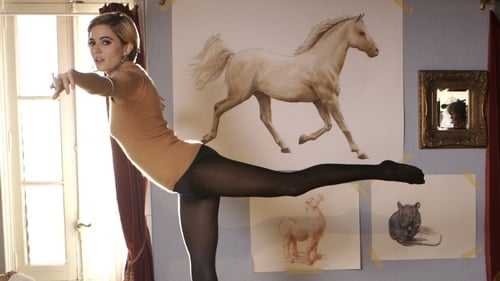
Edie Sedgwick (Sienna Miller) é uma modelo rica, bela e ambiciosa, que tem sua vida alterada após conhecer Andy Warhol (Guy Pearce), o mais famoso artista plástico de Nova York. Edie passa a frequentar o estúdio de Warhol, onde músicos, artistas e atores se encontram durante o dia para criar arte e à noite para se divertir. Aproveitando a proximidade com Warhol, Edie lhe pede que dê uma ajuda a Danny Quinn (Hayden Christensen), um talentoso músico. Quinn, por sua vez, deseja que Edie se afaste de Warhol, acusando-o de usá-la em seus filmes sem lhe pagar algo.
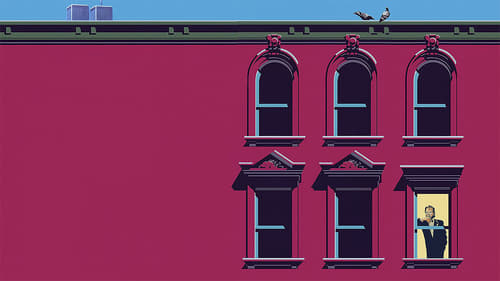
Na primeira história, Lições de Vida, Lionel Dobie, um famoso artista plástico, fica arrasado quando Paulette, sua namorada e assistente, planeja abandoná-lo. Na segunda, A Vida Sem Zoe, Zoe, uma menina, vive esquecida em um hotel de luxo enquanto seus famosos pais viajam o mundo. Na terceira, Édipo Arrasado, Sheldon Mills é um advogado que não consegue se libertar da mãe dominadora.
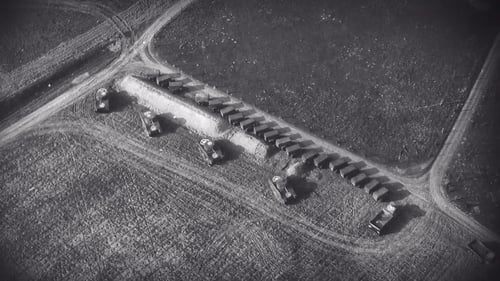
During World War II, a hand-picked group of American GI's undertook a bizarre mission: create a traveling road show of deception on the battlefields of Europe, with the German Army as their audience. The 23rd Headquarters Special Troops used inflatable rubber tanks, sound trucks, and dazzling performance art to bluff the enemy again and again, often right along the front lines. Many of the men picked to carry out these dangerous deception missions were artists. Some went on to become famous, including fashion designer Bill Blass. In their spare time, they painted and sketched their way across Europe, creating a unique and moving visual record of their war. Their secret mission was kept hushed up for nearly 50 years after the war's end.

A nude couple pose in an art studio on a square rug, while the camera does a circular traveling around them; the woman has her right knee on the floor and her right arm raised in front of her face, holding the man's thighs with her right, while the man is bent forward, as if looking in the distance.

A 16 mm film, featuring Yoko Ono's own eye slowly blinking, shot by Peter Moore with a high-speed camera at 2,000 frames per second, which is projected at normal speed, 24 frames per second, thus creating a slow-motion effect.

Andy Warhol's Silver Flotations is a portrait of Warhol's famous installation of floating silver helium-filled balloons at the Leo Castelli Gallery in 1966. Willard Maas's lyrical "film poem" is the only visual document of this seminal exhibition.

The film about Max Bill (1908-1994) moves between the dynamic fields of art, aesthetics and politics. Max Bill was probably the most important swiss artist of the 20th century and the most famous student to come out of the legendary Bauhaus in Dessau. He was an ardent anti-fascist and all his avant-garde work as an artist, sculptor, architect and typographer showed a social responsibility and environmental awareness right through his life. His views have become incredibly topical.

Painter Zdzisław Beksiński, his wife Zofia and their son Tomasz, a well-known radio journalist and translator, were a typical and unconventional family, both at the same time. One of the father’s obsessions was filming himself and his family members. Using archival footage only, shot primarily by Zdzisław, as well many other materials, which have not been presented anywhere so far, the film tells a tragic story of the Beksińskis that has never ceased to fascinate Polish filmmakers.
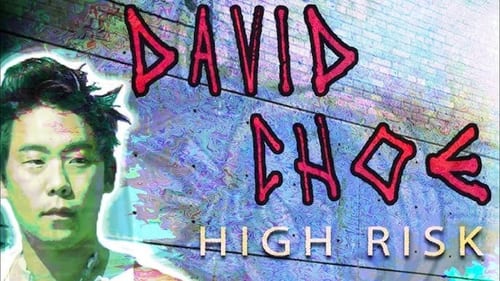
Artist David Choe has led a life of high risk, from hedonistic excesses to being imprisoned at a maximum security facility in a foreign country, and yet has been dramatically rewarded for his exploits. Life didn't change much when he traded a $60k fee in favor of stock in a start-up called The Facebook, but now he is estimated to be worth over $250 million, highlighting a colorful career filled with giant street art installations, porn star affairs and investigative reporting for companies like Vice and CNN. Director and childhood friend Harry Kim guides us through the fantastically surreal life of Choe featuring interviews and appearances by Kevin Smith, Eli Roth, Sasha Grey, Sean Parker, and Shepard Fairey.

Observes the creative process and thinking of Alfredo Jaar, of the most relevant artists in contemporary art. His work deals from the migration in the frontier of Mexico and the US, to the genocide in Rwanda and the Chilean coup d'etat in 1973. He sees art as the "last place" of freedom in modern society and from that idea he unfolds his work as an act of resistance.

The Whitney Museum of American Art presented the landmark exhibition Jeff Koons: A Retrospective from June 27 to October 19, 2014. It was the largest, most comprehensive survey of Koons’s art ever assembled, spanning four decades of his career and displaying 145 works from every series, including 13 new pieces exhibited publicly for the first time. The film follows Koons and Whitney Chief Curator, Scott Rothkopf, who conceived and organized the show, through every gallery of the exhibition. In addition, insightful interviews with Adam Weinberg, the Whitney’s Director, Robert Storr, Dean Emeritus of the Yale School of Art, and Michelle Kuo, Editor of Artforum, help to deepen the investigation into Koon’s art and process.

We are in the midst of production on a one-hour film on seminal art historian John Richardson, and his work on the fourth and final volume of his biography on Picasso. Richardson shares his insights and observations on Picasso, whom he first met in the 1950s, with Shelley Wanger, his editor at Alfred A. Knopf (a division of Random House, Inc.).

When a group of young DIY artists in Santa Fe can’t find a door into the art world, they blow open an entirely new portal with their grit, passion, and tenacity. Within just a few short years – and with a little help from George R.R. Martin – this group called Meow Wolf ultimately hits a cultural nerve and garners massive, unexpected success with their exhibit, House of Eternal Return.

Black and white animation based on Munch's art of work. The image changes gradually and resembles at one point The Scream.

"Let's Not Pretend" is a film by Riley Bartolomeo about acclaimed artist Susan Calza. This documentary follows this award and fellowship grant winning artist to discover the autobiographical stories which lay beneath her art. Moreover, the film emphasizes the importance of art in our communities, country and world!

An unpublished painting, the meeting of two geniuses in a single painting arrives to the museum at a rainy night. The museum caretaker observes the work of art being brought to the lounge where it will be exhibited to the public. The wet box drips on the paint, the paint softens and releases the conjoined painters who walk around the museum intervening on the works of art in a Cubist and Surrealist manner. The caretaker "chases" our painters in a classic cartoon chasing, using the Renaissance mechanisms to restore the order.

A young painter succeeds portraying scenes of violence and lust connected to real crimes that plague Los Angeles.












